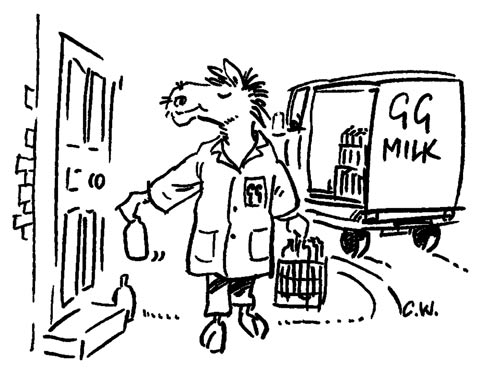
How would you like a delicious horse sandwich? The French have their specialist butchers called boucheries chevalines and the Italians their salame di cavallo sausages, but for some reason horse meat is taboo in the English-speaking world. The same goes for horse milk - yet across much of the world, mares’ milk is regarded with no more suspicion than that of goats or sheep.
Mares’ milk is not a new fad, but it is coming back into fashion. In the early 20th century it was so popular in Germany that it was delivered door to door. More recently it has enjoyed a revival in continental Europe, with equine dairy farms springing up in Belgium, France, the Netherlands and Norway. In central Asia, mares’ milk is a staple food, though they prefer it with a kick.
In Mongolia, Kazakhstan and Kyrgyzstan the tradition is to ferment it in a horse-hide sack for a few days until it turns into a frothy, acrid and mildly alcoholic beverage called kumis, or airag in Mongolia.
Where can you go for a refreshing cup of mare's milk? Most of it is sold as a freeze-dried powder, though there are also places where you can get it fresh. The food hall of the famous Le Bon Marché department store in Paris sells bottles of organic lait de jument, produced from
thoroughbred mares on an organic farm in Burgundy.
It doesn't come cheap: a quarter of a litre will set you back €12. But according to some connoisseurs, it's worth it. Mares’ milk is lighter and sweeter than cow's milk, with ‘notes of watermelon and wild grass, and a nutty undertone’.
Novelty aside, there may be good reason to pour some mare's milk on your breakfast cereal. Long thought to have curative properties, mares’ milk has been touted as a balm for digestive problems, elixir for the liver, a tonic for general malaise and great for the skin.
However there there is one group of people for whom mares’ milk has proven benefits. Infants with severe food allergies will often
tolerate mares’ milk when all other milk makes them sick. Recent research suggests that this is because mares’ milk is closer in composition to human milk than that of any other mammal.
So how on earth do you milk a horse? It takes considerable skill. Unlike a cow, a mare will not lactate unless her foal is present - and there is the ever-present danger of getting a flying hoof in the face.
Courtesy of issue 2608 of New Scientist magazine, 16 June 2007, page 58
First published in July 2010
More research on other animal milks
Top of page |











